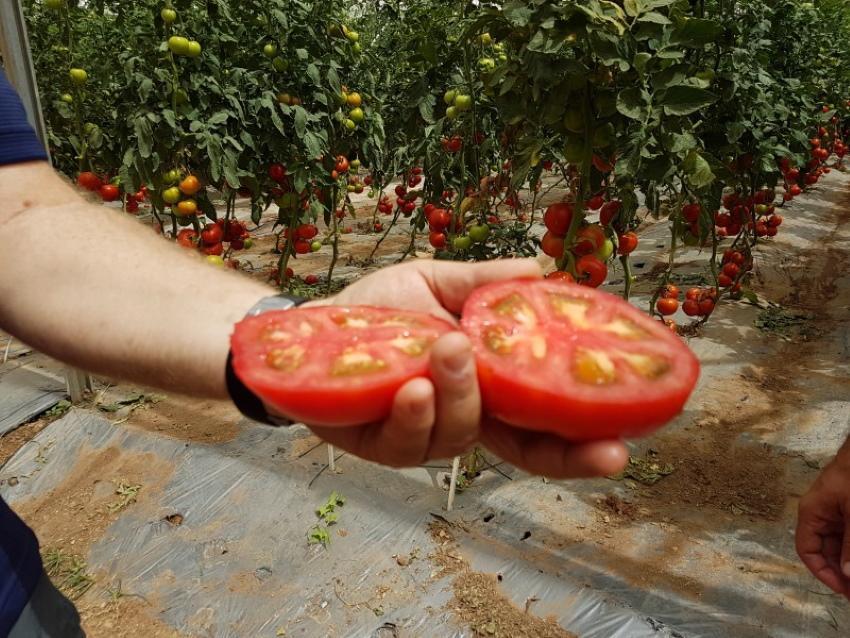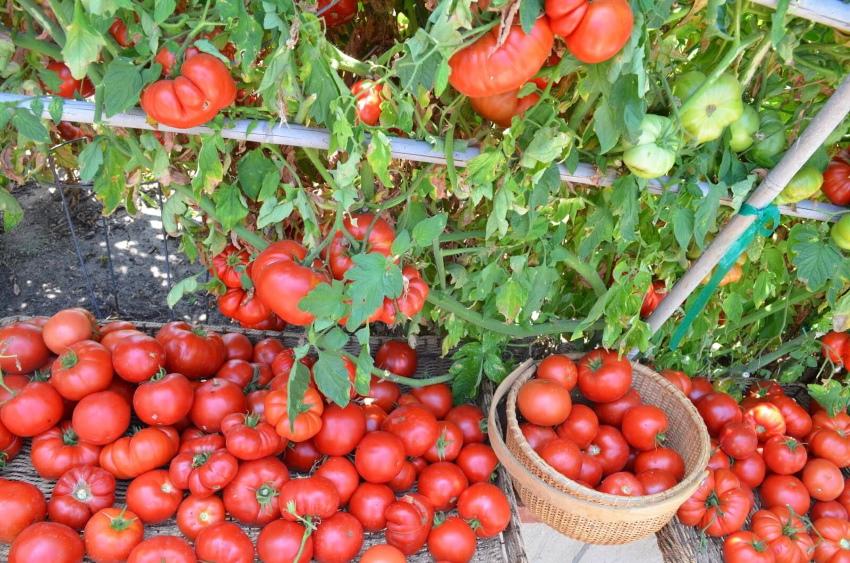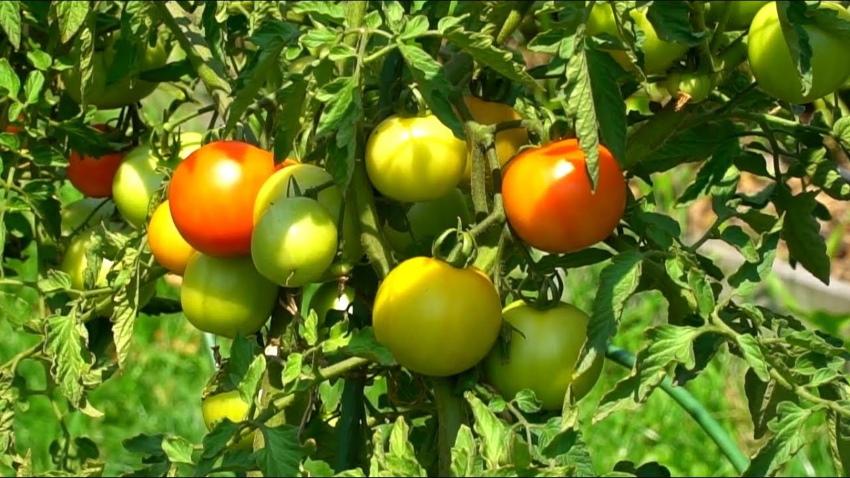How to improve the taste of tomatoes and why it depends
 It often happens that the same variety of tomatoes in different years does not give the same yield. Some fruits are juicy and sweet, while others are watery and sour. If you are familiar with this situation, you are probably wondering how to improve the taste of tomatoes. Of course, the harvested vegetables will already remain the same. But it is quite possible to prevent the repetition of history, because the main reason lies in the correct cultivation technique and crop care.
It often happens that the same variety of tomatoes in different years does not give the same yield. Some fruits are juicy and sweet, while others are watery and sour. If you are familiar with this situation, you are probably wondering how to improve the taste of tomatoes. Of course, the harvested vegetables will already remain the same. But it is quite possible to prevent the repetition of history, because the main reason lies in the correct cultivation technique and crop care.
How to improve the taste of tomatoes

- lighting;
- planting method, namely, the distance between the bushes;
- watering mode;
- the presence of adequate nutrition, in particular, additional plant nutrition.
In addition, pay attention to the timing of the harvest. The longer the fruits are on the bushes, the more they receive nutrients, which means they will be sweeter. Brown tomatoes plucked at the semi-ripeness stage will "reach" indoors. But sourness will already appear in their taste, and there will be less juiciness. Leave such vegetables for winter harvesting, and it is better to eat well-ripened tomatoes on the bushes for food.
How lighting affects taste
 Tomatoes are a thermophilic culture, which is very demanding on the sun and at the same time does not like drafts. Give them the sunniest area protected from the wind - the southern slope on the leeward side. There the tomatoes will be large and tasty. Plants, planted in a semi-shaded and ventilated place, largely lag behind in taste characteristics.
Tomatoes are a thermophilic culture, which is very demanding on the sun and at the same time does not like drafts. Give them the sunniest area protected from the wind - the southern slope on the leeward side. There the tomatoes will be large and tasty. Plants, planted in a semi-shaded and ventilated place, largely lag behind in taste characteristics.
We plant correctly
 Again, everything is related to the fact that the bushes receive enough sunlight from all directions. Thickened plantings prevent this and their fruits will be watery.
Again, everything is related to the fact that the bushes receive enough sunlight from all directions. Thickened plantings prevent this and their fruits will be watery.
Leave at least 40 cm between low-growing varieties, and at least 50 cm between medium-sized varieties.High tomatoes, like climbing ones, are best grown in a trellis method or tied to a support, leaving at least 60 cm.
How to water to make tomatoes sweet
 In the case of tomatoes, excess moisture can only harm, and this is not only about possible diseases. The more water the plants receive during the ripening period, the more water there will be in the fruits themselves. The flesh will become watery and savory. Water the bushes with settled, but by no means cold, water. The greatest need for moisture in a culture from the moment of planting seedlings to the formation of the ovary. During this period, they will need watering three times a week. When the fruits are tied, switch to double watering, and with the beginning of ripening - only once a week.
In the case of tomatoes, excess moisture can only harm, and this is not only about possible diseases. The more water the plants receive during the ripening period, the more water there will be in the fruits themselves. The flesh will become watery and savory. Water the bushes with settled, but by no means cold, water. The greatest need for moisture in a culture from the moment of planting seedlings to the formation of the ovary. During this period, they will need watering three times a week. When the fruits are tied, switch to double watering, and with the beginning of ripening - only once a week.
How to feed
 In addition to preparing and fertilizing the soil before planting seedlings, the bushes need additional feeding. Simple but effective means will help speed up ripening and increase sugar content: iodine and ash... Add a couple of drops of iodine to a bucket of water once a week.You can water with such a solution from the very beginning, when the seedlings will already grow in a permanent place. Ash solution (1 tbsp. Per bucket) will be needed a little later, as soon as ripening begins.
In addition to preparing and fertilizing the soil before planting seedlings, the bushes need additional feeding. Simple but effective means will help speed up ripening and increase sugar content: iodine and ash... Add a couple of drops of iodine to a bucket of water once a week.You can water with such a solution from the very beginning, when the seedlings will already grow in a permanent place. Ash solution (1 tbsp. Per bucket) will be needed a little later, as soon as ripening begins.